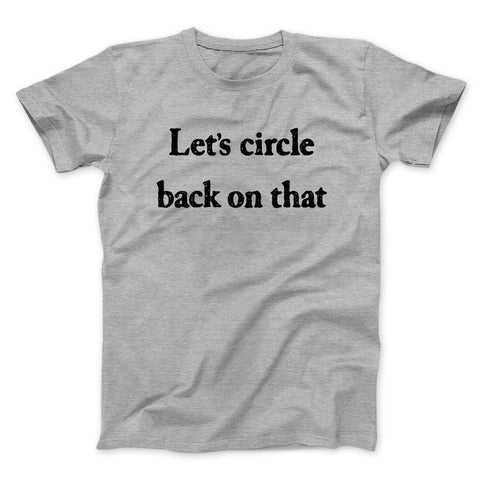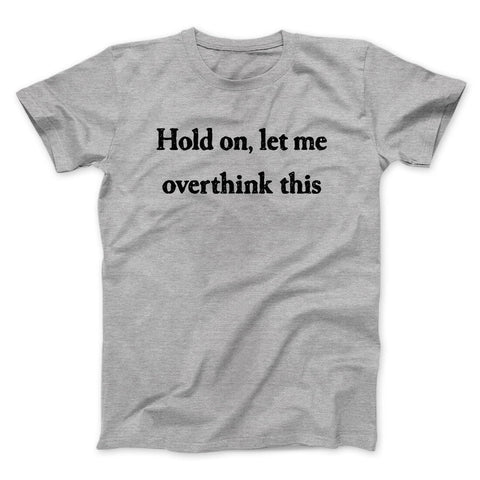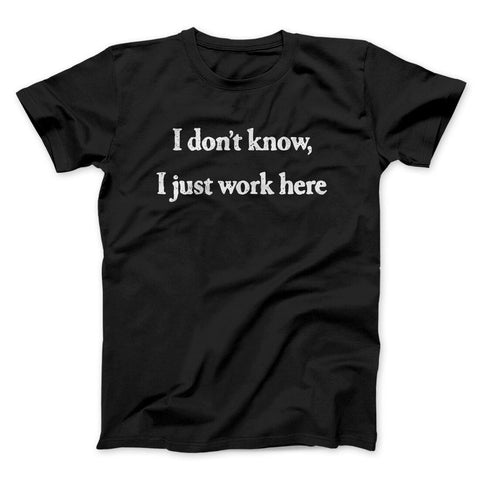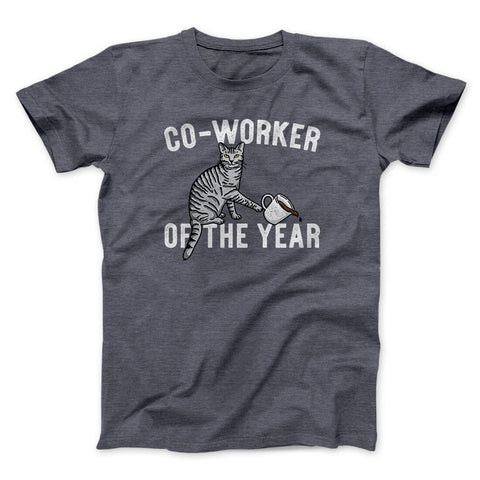
Tired of reminding yourself that teamwork makes the dream work? Half of diving into office work is feeling like you cantalk the talk. So let’s see just how much business jargon you know and use regularly. Oh, full disclosure, we’re going to look deep into officeculture, identify thelow-hanging fruit,strategize, and make this as seamless as possible. (See what we did there?)
Whether we’re “circling back” or “touching base” — it’s safe to assume most people have heard these office cliche's and we’re probably guilty of using some — if not all of them.

A study by the Institute of Leadership & Management, on “office speak” in particular, showed that management speak is used in almost two-thirds of offices, with nearly a quarter considering itpointless irritation. "Thinking outside the box," "going forward," and "let's touch base" were identified as the top three most overused pieces of jargon, so overused they now borderline on being over-told office jokes.
What is Corporate Speak?

Corporate jargon is workplace language used to describe a set of words, phrases, or acronyms used in a business or corporate setup. These can be difficult for new hires to understand or even in a job interview. Corporate jargon is called corporate lingo, corporate speak, or management speak. Jargon is deeply rooted in the corporate culture and can differ from your previous job. These words, phrases, or acronyms stay in use for so long that they become part of your and your co-workers' vocabulary.
In fact, when joining a new company, learning the jargon can feel like a complete power game. It’s complicated and confusing — and feels so good when you can turn it around on itself and make amutual understanding funny.

Why Does Jargon Exist?
Even though the use of corporate jargon at workplaces is considered unnecessary and even made fun of sometimes, here are some of the reasons why it still exists:
- It conveys unique ideas and directions or emphasizes a crucial matter.
- Some people use corporate jargon to sound more knowledgeable or appear more professional.
- It becomes a part of your repertoire of overused buzzwords and work jokes.
- People have been using jargon for so long that it slips in, often unconsciously — whoops, guilty.
Here are 25 of the biggest buzzwords we often hear. Bonus points if you’ve used at least five this week!
1. ASAP
ASAP is the acronym for ‘as soon as possible.’ Asking to submit the work ASAP means that something is urgently required.
2. Balls in the Air
Corporate professionals use the phrase ‘balls in the air’ when simultaneously several activities or tasks occur. It has the same meaning as ‘too much on the plate.’
3. Actionable Items
An actionable item or action item refers to a task or action that needs to be performed by an individual or a team. You can understand it as a ‘to-do list.’
4. Bandwidth
Bandwidth is the capacity to take on more work. If your team member asks you whether you have the bandwidth to take on a new project, they ask if you have the time, capacity, and resources to handle theadditional responsibilities.

5. Blue Sky Thinking
Blue sky thinking refers to finding creative solutions or innovative ideas. It simply means to think out of the box.
6. Backburner
To put something on the back burner means to de-prioritize a task.
7. Circle Back
When someone says they will circle back to you on this, they’ll discuss it with you later.
8. Deck
In business terms, a deck is a PowerPoint or Google Slides presentation. For instance, investor deck is a very commonly used phrase in startups.
9. One-Pager
Providing a one-pager refers to creating a summary or pointers of a report or plan on a single page.
10. Deliverables
Deliverables refer to the tasks or responsibilities assigned to you. For instance, providing an update on your deliverables means sharing your task progress.
11. Leverage
This corporate jargon means to use a resource or a situation in a practical, advantageous manner.
12. Ducks in a Row
This means getting organized or making all necessary preparations for a task or project, say, a presentation or seminar.
13. Bring to the Table
This is common corporate jargon, so much so that people have even started using it in their daily lives. Bring to the table refers to thegood quality, skills, expertise, ideas, or experience you can offer to a project, task, or organization.

14. Game Changer
It refers to a unique or fantastic plan that can give a significant competitive advantage to a business.
15. Get on Board
Getting on board means agreeing with a plan, strategy, or idea.
16. Good to Go
This is one of the most commonly used phrases in the corporate world. It means confirming that a task, project, or action item is fine and can be sent ahead.
17. Hard Stop
People use hard stops to specify a particular time to end a meeting because the person has some other commitment or conflict.
18. Bleeding Edge
Cutting or bleeding edge describes a novel product, idea, creation, or innovation, especially related to technology.
19. Low-Hanging Fruit
It describes an easy task or opportunity that provides quick and good results.
20. Park it
Parking a project or idea means keeping something on hold until you get approval from another team member or an event occurs.
21. Reinvent the Wheel
This means to go back and start something all over again, perform a similar task, or do something already done earlier.
22. Synergy
Synergy describes the positive outcome of teamwork or collaboration between different departments or teams.
23. Touch Base
Touching base with someone means you will communicate, talk or discuss something with them.
24. Trim the Fat
Trimming the fat refers to cutting down or reducing unnecessary things like expenses, projects, or project details.
25. New Normal

We’ve started using tactful phrases to remind ourselves that we adapt and adjust while the world changes.
So, how’d you do? To be honest, we chuckled through these.
Moreover, the same study found that the obsession with weird and wonderful workplace jargon is a universal part of the world of work.
Here are five of the most bizarre translated examples of business buzzwords from around the world and what they mean in their local language:
Germany: ’Now it’s about the sausage!’
Original phrase: Jetzt’s geht's um die Wurst!
Meaning: The final stages of a project
Sweden: ‘Sliding in on a shrimp sandwich’
Original phrase: Glida in på en räkmacka
Meaning: To have things easy
France: To give one’s tongue to the cat
Original phrase: Donner sa langue au chat
Meaning: To give up
France: To come in like a hair in the soup
Original phrase: Arriver comme un cheveu sur la soupe in French
Meaning: To enter a situation at the worst time
Spain: Smash the file
Original phrase: Dar Carpetazo
Meaning: To put a project to one side
Poland: ‘What does gingerbread have to do with a windmill?’
Original phrase: Co ma piernik do wiatraka?
Meaning: What does one task have to do with another?
Greece: ‘He cooked the fish on his lips’
Original phrase: έψαχνε ένα ψάρι στα χείλη του / épsachne éna psári sta cheíli tou
Meaning: He made his life difficult
China: ‘Nine cows, one hair.’

Original phrase: Jiu Niu Yi Mao
Meaning: A drop in the ocean
So it seems that wherever you are, you can’t escape business jargon — and we welcome irritating euphemisms withopen arms.
























